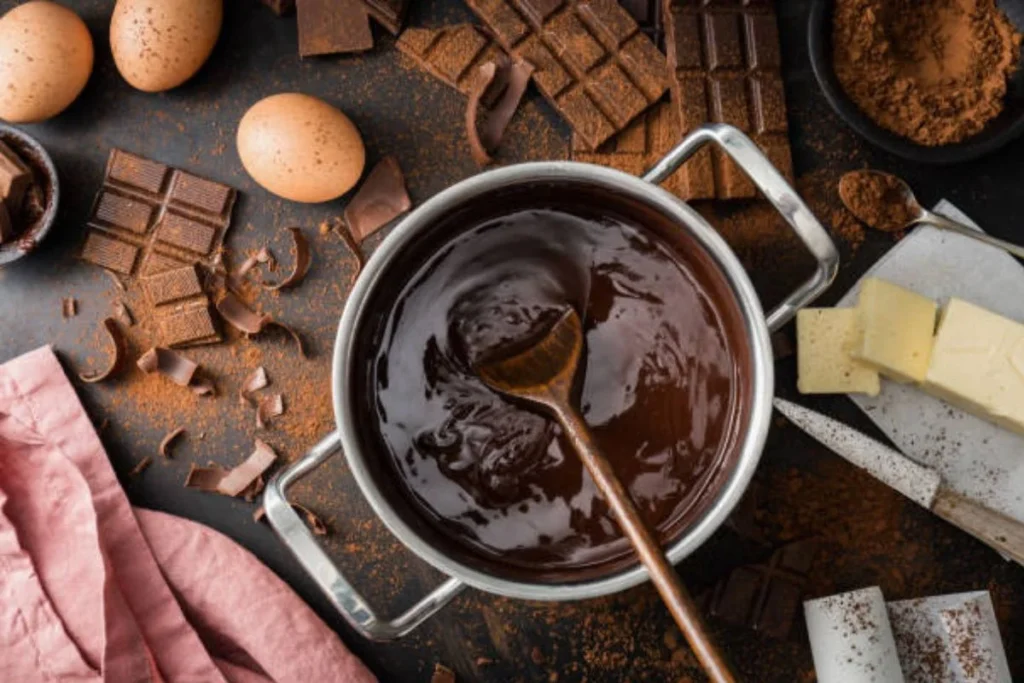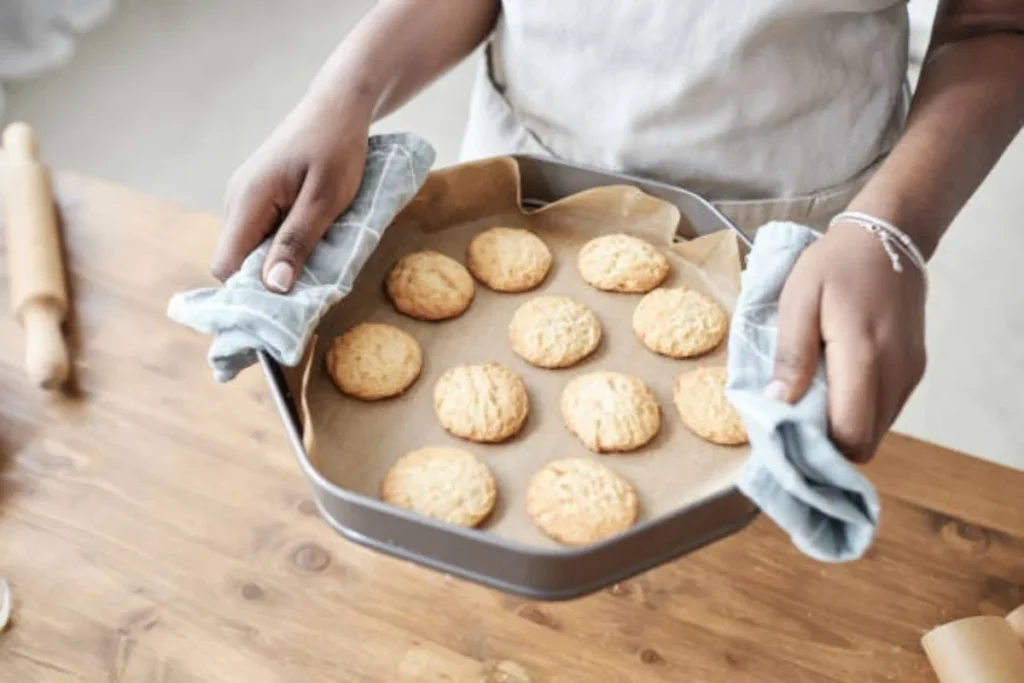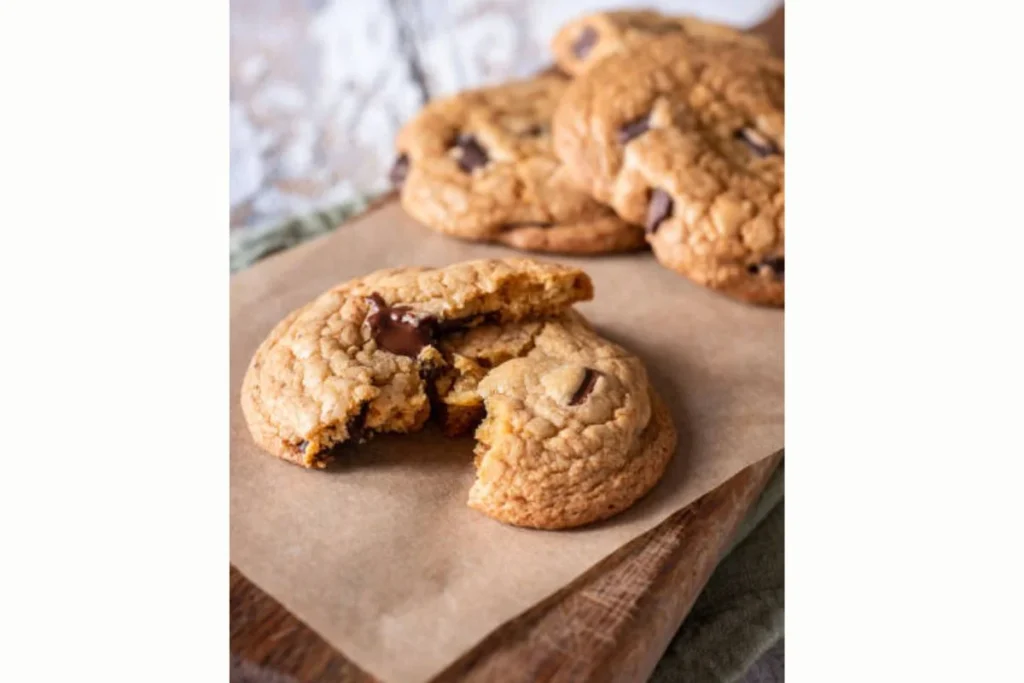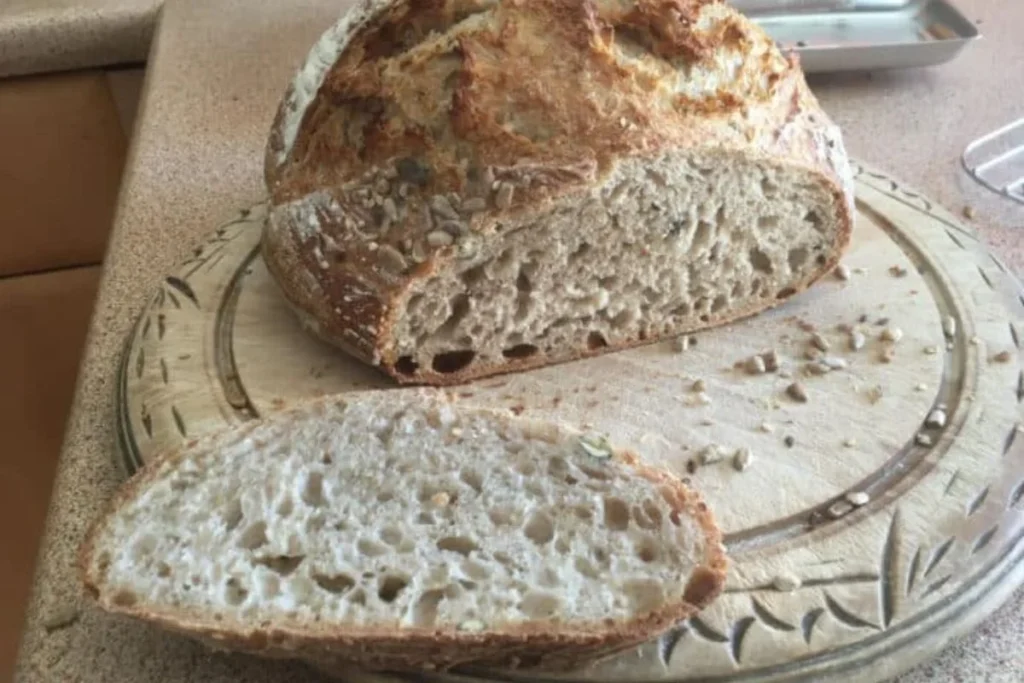
Why Do My Cookies Taste Bitter and How to Fix Them
Nothing’s more disappointing than taking a bite of freshly baked cookies and tasting bitterness you didn’t expect. If you’ve ever wondered why your cookies turn out bitter, don’t worry – you’re not alone.
In this blog post, we’ll explore why cookies can taste bitter and give you some simple solutions to make sure your next batch comes out perfectly sweet.
Table of Contents
Toggle10 Common Reasons Why Your Cookies Taste Bitter
Knowing why your cookies taste bad can help you fix them easily. In this section, we’ll talk about seven common reasons that might be making your cookies bitter.
1. Overbaking
Overbaking is a common mistake that can turn your cookies from tasty to too crunchy. When cookies stay too long in the oven, the sugars in them get too caramelized, making them taste bitter. The best cookies are a mix of crispy on the outside and soft inside.
To avoid overbaking, keep a close eye on your cookies, set a timer, and check them a minute or two before they’re supposed to be done. Paying extra attention can make a big difference between getting perfect cookies or ones that are too crunchy.

2. Burnt Butter
Butter is a big deal in cookies, giving them richness and flavor. But if you heat it too much, it can burn and make your cookies taste bitter instead of sweet. To avoid this, melt your butter gently over low heat and watch it closely.
Give the pan a swirl now and then to melt it evenly, and take it off the heat as soon as it turns golden brown. Using good-quality butter that can handle the heat without burning will also help your cookies taste better.
3. Inadequate Mixing
Mixing your cookie dough right is super important. If you don’t mix everything together well, you might end up with pockets of baking soda or uneven flavors, which can make your cookies taste weird.
Follow the recipe carefully, scrape down the sides of the bowl, and use a spatula to fold in any dry ingredients left behind. Taking the time to mix properly ensures that every bite of your cookies tastes good and not bitter.
4. Excessive Baking Soda
Baking soda helps your cookies rise and get the right texture, but using too much can make them taste bitter. Too much baking soda throws off the flavors, making your cookies taste more bitter than sweet.
To avoid this, measure your ingredients carefully and double-check the recipe. If you think there’s too much baking soda, add something sweet like chocolate chips or honey to balance out the bitterness.

5. Cheap Chocolate
Chocolate adds sweetness and flavor to your cookies, but cheap chocolate can make them bitter. Low-quality chocolate has more cocoa and less sugar, making your cookies taste bitter.
Pick high-quality chocolate with the right balance of cocoa and sugar to make your cookies taste sweet, not bitter. You can also try different types of chocolate to find what works best with your recipe.
6. Too Much Salt
Salt boosts the flavor of your cookies, but too much or too little can make them taste bitter. Salt brings out the sweetness in your cookies, so if they taste bitter, you might need to adjust the salt.
Double-check your measurements and experiment with different types of salt, like sea salt or kosher salt, to find the right balance.
7. Contaminated Baking Utensils
Dirty baking tools can make your cookies taste bitter because of leftover flavors from other foods. Wash all your baking tools well before using them, especially if they’ve been used for savory dishes.
You might even want to have separate tools for sweet and savory baking to avoid mixing flavors. Doing this extra step ensures that your cookies taste sweet and not unexpectedly bitter.
8. Stale Ingredients
Using stale ingredients can contribute to the bitterness of your cookies. Ingredients like flour, baking soda, and spices can lose their freshness over time, affecting the overall taste of your cookies.
Check the expiration dates on your ingredients and store them properly in airtight containers to maintain their freshness. Using fresh and high-quality ingredients ensures that your cookies not only taste better but also have a more vibrant flavor profile.
9. Incorrect Oven Temperature
Baking at the wrong temperature can lead to uneven cooking and affect the taste of your cookies. Too high a temperature can result in overbaking, while too low a temperature may leave your cookies undercooked and raw in the center.
Invest in an oven thermometer to ensure that your oven is calibrated correctly. Following the recommended temperature in your recipe helps achieve the perfect balance of crispiness and softness, preventing bitterness caused by incorrect baking temperatures.
10. Unbalanced Sweeteners
The type and amount of sweeteners you use in your cookie dough can significantly impact the taste. Using too much of a particular sweetener or using an overpowering sweetener with a strong aftertaste can lead to bitterness.
Experiment with different sweeteners, such as brown sugar, white sugar, or maple syrup, and find the right balance for your taste preferences. Adjusting the sweetness ensures that your cookies have a pleasant, well-rounded flavor without any bitter undertones.

How to Fix Bitter Cookies After Baking | Step-by-Step
Follow this step-by-step guide to fix bitter cookies after baking and restore the joy of indulging in your favorite homemade treats.
Identify the Culprit
Before taking any corrective measures, it’s essential to pinpoint the cause of the bitterness. Common factors include overuse of baking soda or baking powder, or overbaking. Understanding the root cause will guide your efforts in rectifying the issue effectively.
Balance the Flavors
One effective way to counteract bitterness is by balancing the flavors in your cookie recipe.
If the bitterness is subtle, try enhancing the sweetness by adding a bit more sugar. Alternatively, incorporating a small amount of vanilla extract or almond extract can contribute a pleasant aroma and help mask the bitter taste.
Nut Butter Magic
If your cookie dough includes nuts, especially walnuts or almonds, they might be the source of the bitterness. Toasting the nuts lightly before adding them to the dough can enhance their flavor and eliminate the bitter notes.
Be cautious not to over-toast, as this could introduce a burnt taste.
Counteract Baking Soda/Powder
If your recipe called for baking soda or baking powder, an excess amount might be the culprit. Counteract this by adding a small amount of acid, such as lemon juice or cream of tartar, to neutralize the bitterness.
Gradually incorporate the acid and taste-test until the desired balance is achieved.
Chocolate Fix
If your cookies contain chocolate, the type and quality can significantly impact the overall taste. Dark chocolate tends to be more bitter, so consider using a sweeter chocolate or adjusting the quantity to achieve the desired balance.
Additionally, a touch of cocoa powder can enhance the chocolate flavor without adding bitterness.

Tips for Preventing Bitter Cookies in Future
Making sure your cookies don’t turn out bitter is all about getting the right mix of ingredients, techniques, and paying attention to the little details. Follow these simple tips to make sure your next batches come out tasting sweet.
Start with Good Ingredients: Use fresh flour, good cocoa powder, and quality chocolate. Check the dates on your ingredients and pick the best ones you can find for better-tasting cookies.
Watch the Rising Agents: Too much baking soda or baking powder can make your cookies taste bitter. Make sure you follow your recipe carefully and measure these ingredients correctly. Using too much can throw off the flavor balance.
Get the Sweetness Right: Finding the perfect amount of sugar is key. Too little makes bland cookies, while too much can make them bitter. Play around with your recipe to find the sweet spot.
Mix the Dough Right: Don’t overmix or undermix your cookie dough—it affects how they turn out. Follow your recipe closely and don’t overwork the dough. Add dry ingredients slowly and mix only until they’re all combined to avoid bitterness.
Watch the Oven Heat: Baking at the right temperature is crucial. Too hot and your cookies can burn and taste bitter. Use an oven thermometer to make sure you’re baking at the right temp, and stick to the baking times in your recipe.
Go for Unsalted Butter: Using unsalted butter lets you control the saltiness. This way, you can avoid accidentally making your cookies too salty, which can make them taste bitter.
Frequently Asked Questions (FAQS)
What happens if you put too much baking soda in cookies?
Adding excessive baking soda to cookies can lead to an unpleasant soapy taste and a coarse texture. It can also cause the cookies to spread excessively and become thin. Balancing ingredients is crucial for achieving the desired taste and texture in your cookies.
Does baking soda make cookies bitter?
Yes, using an excessive amount of baking soda in cookies can impart a bitter taste. Baking soda is an alkaline compound, and an excess of it can negatively affect the flavor profile. Maintaining the right proportions of ingredients is essential to avoid bitterness and achieve well-balanced, delicious cookies.
Why Do My Cookies Taste Bitter | Conclusion
Bitter cookies can be really annoying, but if you know what might be causing it and how to fix it, you can figure it out and improve your cookie recipes.
Baking is about trying things out as much as it is about being exact, so feel free to play around and change things until your cookies taste just right. With these tips and a bit of curiosity in the kitchen, you’ll soon be baking cookies that everyone will love. Enjoy baking!
Lindsey Mackenzie
About me
Hi there! I’m Lindsey Mackenzie, the founder of Bake Smartly. Baking has been my passion since childhood, growing up in my father’s bakery. With Bake Smartly, I’m excited to share my love for all things sweet and savory. Join me on this delicious journey as we whip up scrumptious treats and sprinkle joy into every bite!






